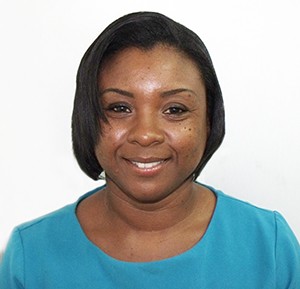- February 12th, 2016
- /
- NCD Stories
- /
- 0 Comments
- /
- Tracie-Ann’s story: adapting to a new life after stroke

My name is Tracie-Ann Jessamy and I am 44 years old. In 2014 I had a stroke.
Many people believe that it’s only older people who this happens to, but this is not the case. When people look at me they don’t really see someone who has had a stroke. They tell me I look good. But I still haven’t recovered. And I will never fully recover.
Although I can walk and move around easily, my main issue is with aphasia¹; a communication disorder where I can’t find the right words. At first I couldn’t even say my own name, remember my son’s name, count to five or tell you the days of the week.
I’m having speech therapy and getting better but it can still be a struggle to say what I want to say. It just takes much longer to get the words out.
People don’t always give me time to communicate: they can be really impatient. I want to tell them, “Don’t finish my sentences for me. I’ll get there!”
To speak to a person with aphasia: face us and make sure you have our attention, keep your voice normal and don’t shout even if we’re shouting ourselves. Speak in short sentences and try not to use big words but don’t talk down to us either.
“People don’t always give me time to communicate: they can be really impatient. I want to tell them, “Don’t finish my sentences for me. I’ll get there!”
My intelligence is intact but I have difficulty understanding conversation and have cognitive problems. For example, I often misunderstand figurative speech. I also have emotional issues such as fear, anxiety, anger, sadness and depression. The stroke has also affected my sense of taste and smell and I am sometimes in pain.
Family and friends have been a great support but they don’t always understand how frustrating my life can be these days. I need to plan everything down to the last detail and things take me twice as long. They know me as a very busy, organised, active person, getting stuff done; the family breadwinner. That’s not me now.
“Now I’m in my forties and I have to decide what to do with the rest of my life. How do I support myself and my family? My son is 16 years old, how do I help him secure his future? “
I used to work in a very stressful corporate environment but I haven’t been able to go back. My employers didn’t know what to do with me and had no experience in adapting to someone who has had a stroke. People don’t know enough about the condition.
Now I’m in my forties and I have to decide what to do with the rest of my life. I’m still struggling with that. How do I support myself and my family? My son is 16 years old, how do I help him secure his future?
I try to be optimistic. I think I’ll succeed. I’ll take much better care of myself and eat well and get enough sleep. I want to reach out to other younger people who have had strokes, especially those with aphasia, so we can support each other, promote better understanding of the condition, and make it easier for others who come after us.
“I know I’ll never be the same Tracie-Ann again. But I’m not any less of a person. Just different.”
Although the changes I’ve undergone are not visible they have been devastating. Health professionals and occupational therapists need to move beyond the acute management of stroke and look at how we can be reintegrated into the community. I need help with rebuilding relationships, dealing with family issues, work, my social life, my general wellbeing and self-worth, getting exercise, the emotional fallout from the stroke and how to find satisfaction in life. The full scope of what rehabilitation means for someone who has had a stroke needs to be re-examined.
I am much better than I was but I am still not the person I used to be. I know I’ll never be the same Tracie-Ann again. But I’m not any less of a person. Just different.



